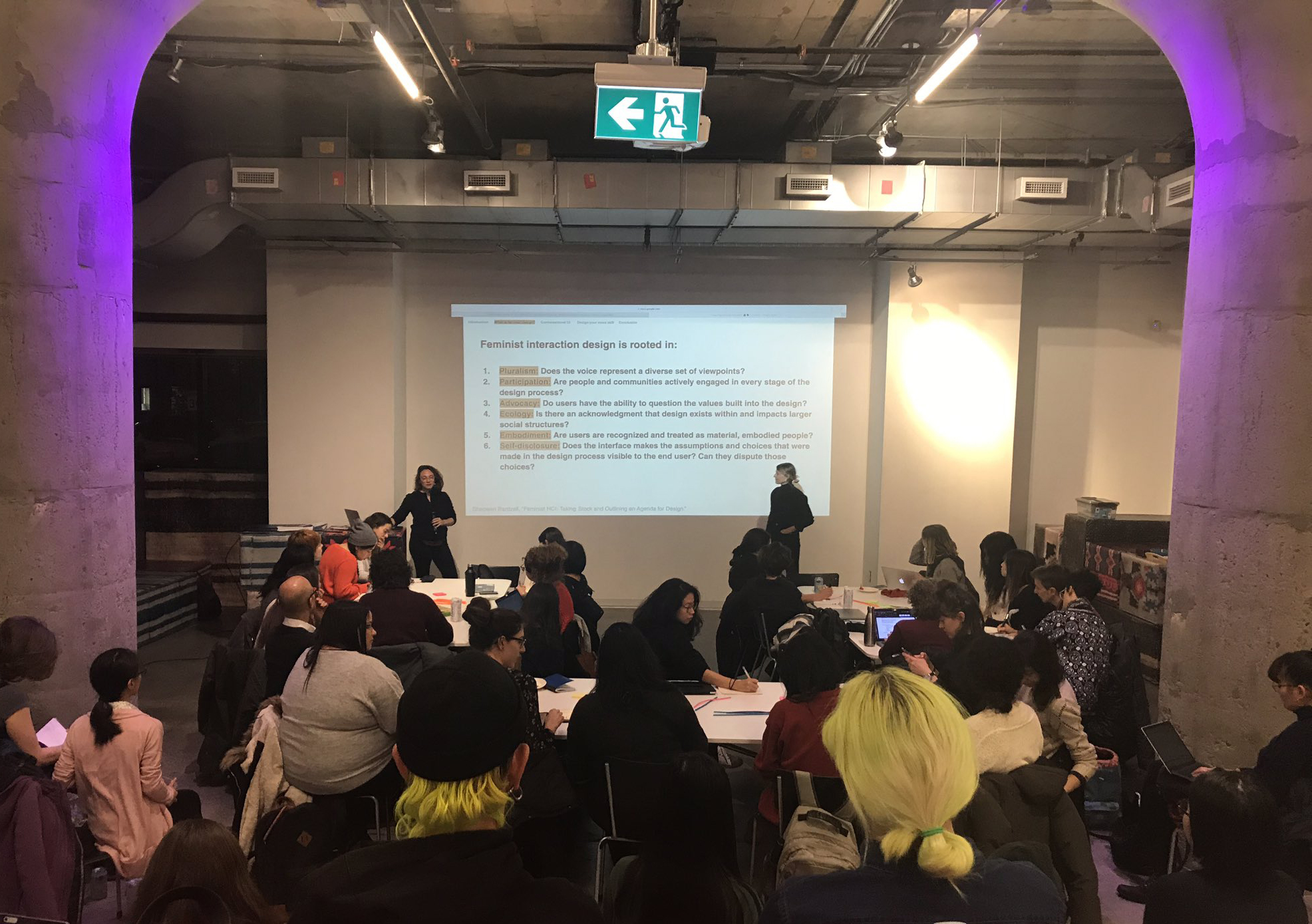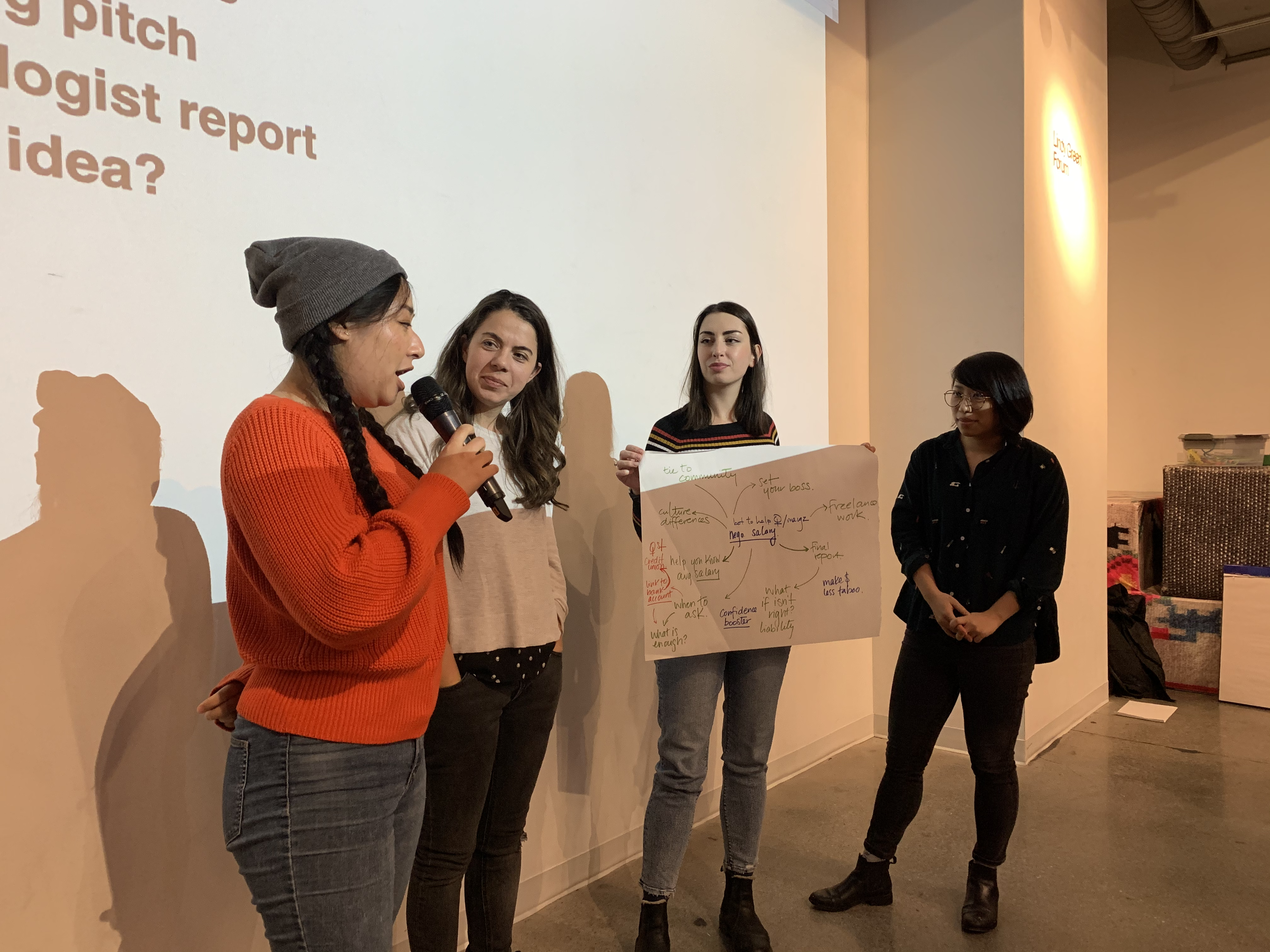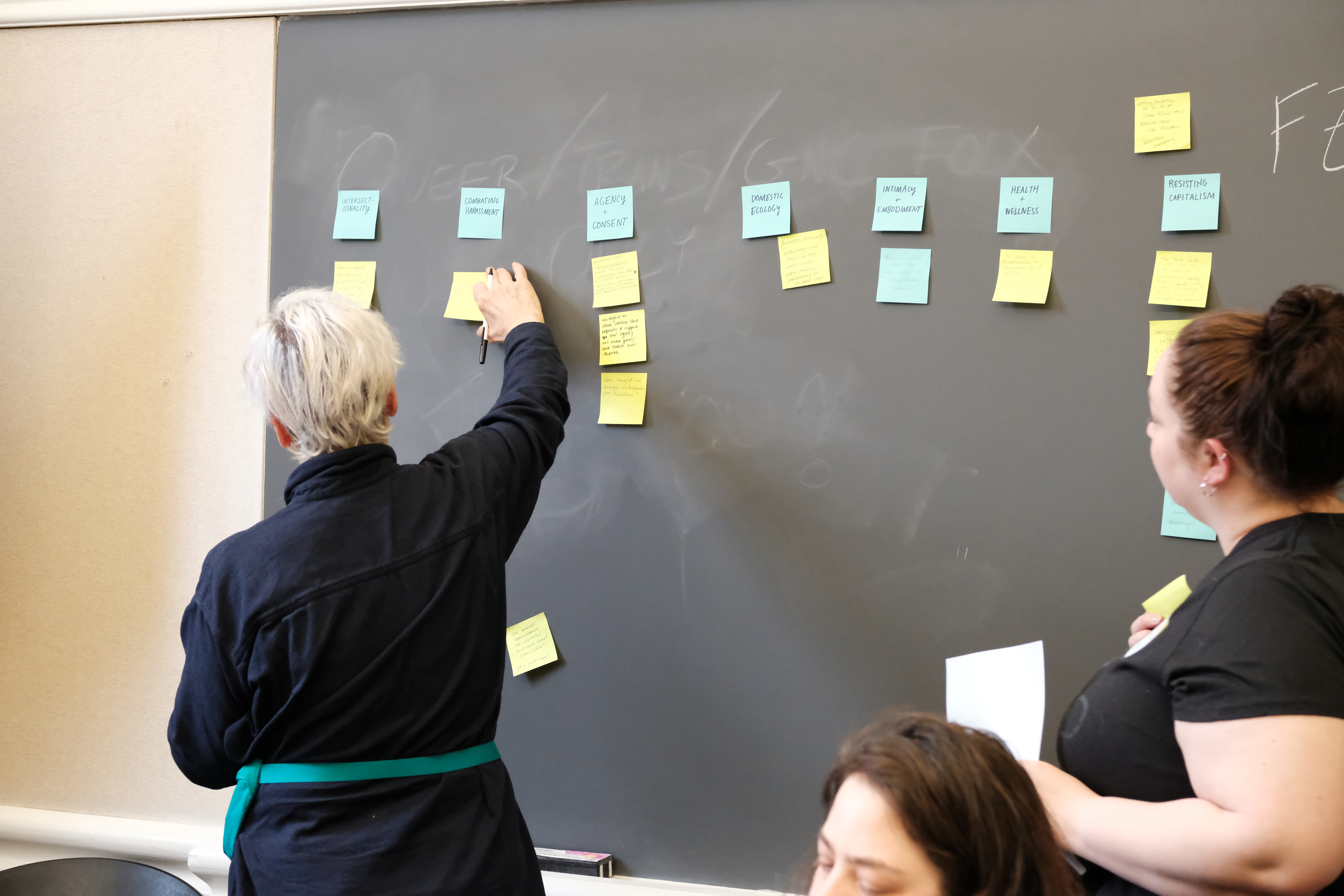Imagining Feminist Interfaces
The multi-year project Imagining Feminist Interfaces (2019-), led by the art collective tendernet, is a zine and workshop series that explores what participatory methods for doing research might look like in the development of AI/ML. I’m one of the founding members of tendernet, alongside Zoe Bachman and Katrina Peterson.
Zines
Our collective tendernet has published a series of zines exploring the design of feminist interfaces. In our writing, we describe some of the principles that are central to designing feminist interactions and think through strategies for integrating those principles into voice technologies.
Historically, technology has created or shaped the conditions for violence and oppression. Many technologies further entrench – rather than question– existing systems of power. In our work, we’ve explored how a feminist interaction design lens might help us reimagine the design of AI technologies.
Instead of nudging us to buy more toilet paper on Amazon, could a voice assistant initiate difficult conversations? Could it attune us to our natural surroundings and ecology? Could it draw our attention to technological and human infrastructure, rather than erase the labor and resources required to maintain it? Could it be bilingual? Could a small language community design it for their own needs?
In a series of workshops, we’ve worked together to imagine and prototype alternatives for voice technologies through the framework of feminist interaction design. Through a series of speculative design exercises, we discussed what voice technologies and software could look like if we designed them in line with the central commitments of intersectional feminism: participation, agency, embodiment, equity, empowerment, plurality, and justice.
Graphic design by Katrina Peterson.
Zines
Our collective tendernet has published a series of zines exploring the design of feminist interfaces. In our writing, we describe some of the principles that are central to designing feminist interactions and think through strategies for integrating those principles into voice technologies.
Historically, technology has created or shaped the conditions for violence and oppression. Many technologies further entrench – rather than question– existing systems of power. In our work, we’ve explored how a feminist interaction design lens might help us reimagine the design of AI technologies.
Instead of nudging us to buy more toilet paper on Amazon, could a voice assistant initiate difficult conversations? Could it attune us to our natural surroundings and ecology? Could it draw our attention to technological and human infrastructure, rather than erase the labor and resources required to maintain it? Could it be bilingual? Could a small language community design it for their own needs?
In a series of workshops, we’ve worked together to imagine and prototype alternatives for voice technologies through the framework of feminist interaction design. Through a series of speculative design exercises, we discussed what voice technologies and software could look like if we designed them in line with the central commitments of intersectional feminism: participation, agency, embodiment, equity, empowerment, plurality, and justice.
Graphic design by Katrina Peterson.
Workshop series
The workshop series Imagining Feminist Interfaces aims to foster an inclusive space in which anyone can contribute their knowledge and experience to the devlopment of voice technologies, regardless of particular expertise or experience.
While the format of the workshops varied, depending on the audience and context, each workshop operated from the assumption that design exists within and shapes larger social structures and ecosystems, and these systems determine the way different communities access and use technology.
In developing our workshops, we reflected on the gatekeeping that exists in Silicon Valley and tech culture more broadly. There are lines drawn between the non-technical and technical, the non-coders and the coders, the non-designers and the designers, suggesting that only people with a technical background can offer meaningful insights into a technology. We tried as much as possible to erase those artificial boundaries in order to acknowledge and elevate the diverse forms of knowledge and experience that participants brought with them to the workshop.
We ran our workshops in a range of different spaces and contexts, including a feminist zine fair at Barnard, a hackerspace in Brooklyn, NY, a contemporary art museum in Toronto, Canada, a university design conference at RISD/Brown, and the Walker Art Center.
The workshop series Imagining Feminist Interfaces aims to foster an inclusive space in which anyone can contribute their knowledge and experience to the devlopment of voice technologies, regardless of particular expertise or experience.
While the format of the workshops varied, depending on the audience and context, each workshop operated from the assumption that design exists within and shapes larger social structures and ecosystems, and these systems determine the way different communities access and use technology.
In developing our workshops, we reflected on the gatekeeping that exists in Silicon Valley and tech culture more broadly. There are lines drawn between the non-technical and technical, the non-coders and the coders, the non-designers and the designers, suggesting that only people with a technical background can offer meaningful insights into a technology. We tried as much as possible to erase those artificial boundaries in order to acknowledge and elevate the diverse forms of knowledge and experience that participants brought with them to the workshop.
We ran our workshops in a range of different spaces and contexts, including a feminist zine fair at Barnard, a hackerspace in Brooklyn, NY, a contemporary art museum in Toronto, Canada, a university design conference at RISD/Brown, and the Walker Art Center.




You can read more about the project in our Adjacent article, Imagining Feminist Voice Technologies.